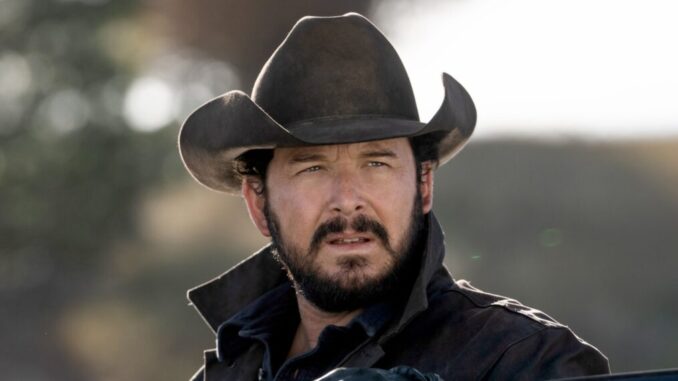
The golden hour light, so often a character in itself on the screen, once felt like a blessing to Jake Thorne. It illuminated the rugged landscape of Montana, the very earth that defined his character, Caleb Vance, on the wildly popular show Yellowstone. For years, Jake had toiled in obscurity, a journeyman actor whose face might spark a vague familiarity but rarely a name. Then came Yellowstone, and with it, a fame so potent and immediate it felt less like a gentle ascent and more like an explosion. But as the dust settled, Jake found that the same spotlight that had brought him success now burned with an aggressive, possessive heat.
The appeal of Yellowstone is undeniable. It taps into a primal American narrative: land, family, power, and the untamed spirit of the West. Audiences don't just watch the Duttons; they inhabit their world, becoming fiercely loyal to the characters and the ideals they represent. Jake's character, Caleb, a stoic ranch hand with a quiet intensity and an unwavering moral compass, quickly became a fan favorite. Initially, the recognition was exhilarating. Polite nods in grocery stores, requests for autographs with genuine appreciation, the occasional heartfelt compliment about his performance. It was the dream, tangible and rewarding. He was no longer just Jake Thorne; he was Caleb Vance, a piece of a story that resonated deeply with millions.
But the line between character and actor, so clear in Jake's mind, began to blur and then aggressively erode in the minds of the fans. It started subtly, a shift in the gaze. The admiration in their eyes morphed into an unblinking stare, a sense of ownership. A quick photo became a demanding photoshoot. A polite conversation transformed into an interrogation about plotlines, personal opinions, or even accusations that he, Jake, was betraying Caleb’s perceived values.
One afternoon, in a quiet coffee shop far from the sprawling Montana set, Jake found himself cornered. A group of women, their faces flushed with excitement and something akin to righteous indignation, surrounded his table. "Caleb! We know you're not really like that in real life, are you?" one demanded, pushing a phone into his face for a selfie he hadn't agreed to. Another chimed in, "You need to tell Rip he's wrong about that last episode!" When Jake, trying to maintain a semblance of normalcy, politely explained he was just an actor and couldn't comment on plot, their smiles curdled. "Don't be a snob, Caleb," one sneered, "we made you!" Their voices, once enthusiastic, became sharp, accusatory. He felt like an exhibit, a possession that had dared to express a will of its own.
This wasn't an isolated incident. The aggression manifested in various forms: the physical invasions of personal space, hands grabbing his arm as if to tether him to their reality; the incessant, often abusive, DMs demanding replies or defending their interpretation of his character; the paparazzi who had become increasingly bold, chasing his car, shouting his character's name, conflating his personal life with the fictional drama he portrayed. He remembered an airport encounter where a man, seemingly overcome with the show’s gritty machismo, had purposefully bumped into him, snarling, "Walk like a real man, Caleb!" as if testing his fictional toughness. The incident left Jake shaken, a cold dread settling in his stomach – a stranger had physically challenged him based on a role he played.
The joy of acting, the love for his craft, began to wane under the constant assault. Jake started to feel like a stranger in his own skin, perpetually on guard. The quiet contentment he once found in his daily life was replaced by a simmering paranoia. Every public outing became a calculated risk, every friendly face a potential threat to his privacy, every interaction a performance he hadn't auditioned for. He found himself retreating, avoiding places he once loved, living a smaller, more contained life. The roar of the crowd, once the sweet sound of success, had become a cacophony of demands, expectations, and a chilling sense of being consumed.
The Yellowstone star's fame, once a beacon of his career, had become a wildfire, burning through the boundaries of his personal life, fueled by an aggressive, possessive fan base that saw him not as Jake Thorne, the actor, but as Caleb Vance, a character they felt they owned. In the vast, open spaces of Montana, Jake Thorne found himself trapped, a prisoner of the very narrative that had set him free. The golden hour light now often felt like a spotlight, harsh and unforgiving, leaving nowhere to hide from the unrelenting gaze of those who loved his character so much, they forgot he was a man.
